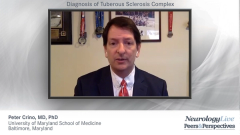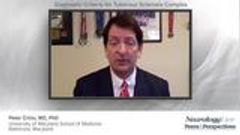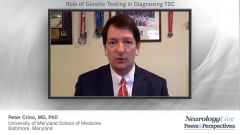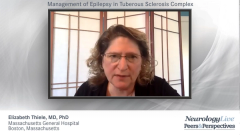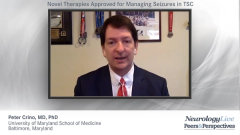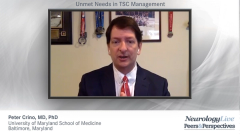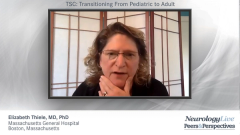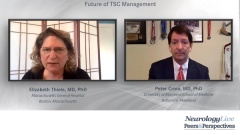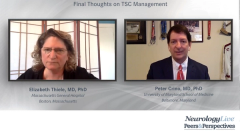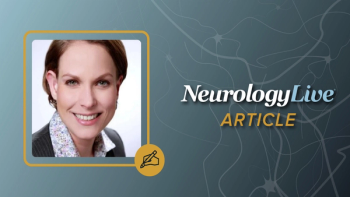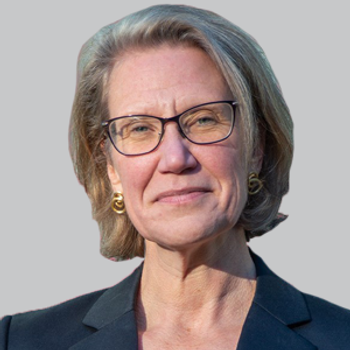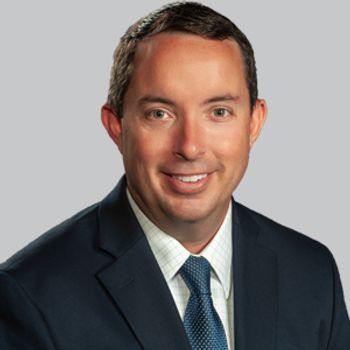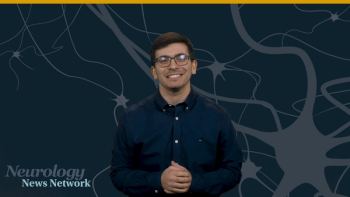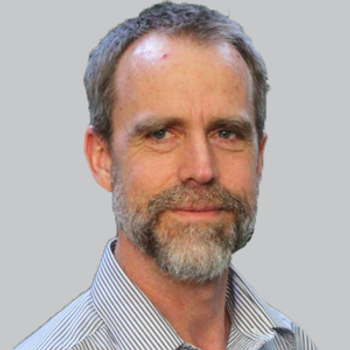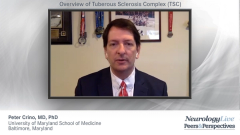
TSC: Transitioning From Pediatric to Adult
Expert neurologists and epileptologists share best practices for transitioning a patient with TSC from adolescence into adulthood.
Episodes in this series

Elizabeth Thiele, MD, PhD: The other thing you and I think about, especially you, is transition. It’s a hot topic in neurology and all medical fields, as people with disorders are transitioning into adulthood. For a disorder like tuberous sclerosis [TS] which is not just the brain, not just treating epilepsy, but many different things, how do you approach that? You say you transition people from adolescence into adulthood. What are your recommendations for the optimum way to do that for an individual with tuberous sclerosis?
Peter Crino, MD, PhD: That’s a really important question. I have been doing this for a lot of years. Whether I was ahead of the curve, I don’t know. Maybe it just worked out that way. There are a couple of fundamental points to acknowledge. No. 1 is that transition is not an event; it’s a process. It takes time to transition people. When you talk to families, you have to realize that many of them have had superlative care by pediatric neurologists, primary care pediatricians, and other pediatric specialists in a family-centered way with lots of infrastructure and support systems and resources. That’s been a wonderful experience for them, and they’ve had lots of great care.
During the transition to adulthood, adult medicine by its nature is less family oriented and more patient oriented. The idea that the individual will gain some more autonomy for their care in terms of responsibility, medications, making appointments if they’re able. If they have intellectual challenges or autism, then that’s still going to be figured out. The third issue is understanding that you’re going to have to gain the trust of the family and that you’re a new person. I have a lot of time where I just sit, and I explain, “I know this is a transition. You don’t know who I am or what I’m going to, so we’ll work together. I’ll show you that I can do this and get you through the process.” Fourth, becoming an adult means that there are other comorbid diseases that just happen in human beings that have nothing to do with tuberous sclerosis. High blood pressure, diabetes, cancer, and heart disease just happen to people, so being aware that not everything is tuberous sclerosis and that you will still need surveillance for other things.
The fifth point is the ability to understand that a critical part of this is that the caregivers are aging out. Many caregivers who were younger, enthusiastic, and energetic, as they age into their sixth, seventh and eighth decades of life, don’t have the ability anymore to care for a 40-, or 50-, or 60-year-old adult with TSC [tuberous sclerosis complex]. Other things come in, such as advanced directives, estate planning, moving to group home settings, and getting in-home health aids.
Those are the things we talk about because a common question I get from parents about their child is, “What’s going happen to them when I’m gone? Who’s going watch out for them?” It’s a very poignant question. It’s a very important question. In my TSC center in Maryland, we have a fabulous social worker who does a lot of these engagements with patients and has these conversations. It’s a transition. We stress that it’s not, “You’re changed now.” It’s not a day thing. It takes some time. Acknowledging that we’re taking care of an adult, not a child. A 27-year-old is an adult, and they have autonomy and agency and want to be independent. I have to recognize that and acknowledge that, and then work together to get the long view of what the care is going to look like.
Elizabeth Thiele, MD, PhD: This is something that’s changed while you and I have been doing this. I remember many years ago, at an adult TSC family conference, talking to many families whose children had been followed when they were children through TSC centers. Then they aged out, and 1 woman spent 3 years trying to find a care provider for their child because these are not easy patients, with multisystem disorder, etc. With the efforts of the TS Alliance, in part, is the strength. That’s the voice of the patient community, and we have more centers in the United States with experts in the care for adults with TSC.
Peter Crino, MD, PhD: I agree.
Elizabeth Thiele, MD, PhD: That’s very important. It must be very frightening, and not only for my patients with TS but also my other patients with pediatric epilepsy. As they age, it’s a different center of family-based care. In pediatrics, it’s the parents, the patient, and the physician. But in the adult world, for some of our patients with TS, it continues to be that, depending on if they have disabilities. For others, it’s a different adult-to-adult care-provider relationship.
I’d like to thank the audience for watching this Neurology Live® webinar. If you enjoyed the content, please subscribe to our e-newsletters to receive upcoming programs and other great content right in your in-box.
Transcript Edited for Clarity
Newsletter
Keep your finger on the pulse of neurology—subscribe to NeurologyLive for expert interviews, new data, and breakthrough treatment updates.

